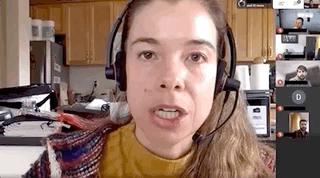"Interrupted" reprogramming with Yamanaka factors reverse epigenetic age | Steve Horvath
Get the full length version of this episode as a podcast.
This episode will make a great companion for a long drive.
The BDNF Protocol Guide
An essential checklist for cognitive longevity — filled with specific exercise, heat stress, and omega-3 protocols for boosting BDNF. Enter your email, and we'll deliver it straight to your inbox.
Yamanaka factors, a group of proteins that can reprogram differentiated (mature) cells into pluripotent stem cells, may be a therapeutically novel way to reverse cellular aging. Following an "interrupted" pattern of reprogramming where cells retain their cellular identity, rather than cross-differentiating to a different lineage or reverting to a stem cell, may allow a type of epigenetic return to youthfulness, but without the cellular identity crisis. When cells are exposed to Yamanaka factors for too long, Dr. Horvath explains, this loss of cellular identity may carry cancer risk. In support of this hypothetical approach, a study using a mouse model of premature aging showed that short-term expression of four of these factors ameliorated cellular and physiological hallmarks of aging and prolonged lifespan. Other research has demonstrated that resetting aging cells to a youthful state in animal models produced fewer signs of aging and longer lifespans. These findings suggest that reprogramming may one day be a viable anti-aging intervention for use in clinical settings. In this clip, Dr. Steve Horvath describes how cellular reprogramming transforms old cells into younger ones.
Steve: Right now there is an idea in the aging field to rejuvenate people by leveraging this fundamental insight. It's called reprogramming. You can take an old cell, you administer certain factors as you mentioned, four factors or three factors or other variants, you know, and by administering this cocktail of factors for just a few days, not too long...because if you administer it for too long you greatly increase the risk of cancer, you know, because the cells lose their identity, the skin cell forgets that it's a skin cell. It thinks it's a stem cell, you know. But if you do it briefly for let's say 5 days, you get the benefit of rejuvenation, you may have rejuvenated the cell by 5 years or 10 years, you know, but it still remembers its identity.
Rhonda: So, does the epigenome reset a little bit? Like, it only...
Steve: Yes. Yes. So, there are a couple of groups that are working on it and have already shown that effect, you know.
Steve: Yes. So, I analyzed fibroblasts and endothelial cells from such an intervention. It's called sometimes interrupted reprogramming or transient reprogramming, you know, and sure enough, you know, that idea worked. It reset the age, but the cells still remembered their identity and therefore arguably will not become malignant. Rhonda: Right. Yeah. That's super interesting.
Steve: In the past, people were wondering, you know, are there interventions that actually reset the epigenetic clock? And the number one proof of principle study is really the administration of these Yamanaka factors because it completely resets the age actually to a 📍 prenatal stage, you know. And the epigenetic clock is the ideal biomarker for that kind of a study, in my opinion, because as I said, it very much tracks the state of the cell, but we will see. Hopefully, in 5 or 10 years, it turns out that this strategy turns into a viable anti-aging intervention that can be used in the clinic. But at this point, these are all proof of concept studies that have been done in the dish or in mouse studies, you know.
Member only extras:
Learn more about the advantages of a premium membership by clicking below.
Attend Monthly Q&As with Rhonda
Support our work

The FoundMyFitness Q&A happens monthly for premium members. Attend live or listen in our exclusive member-only podcast The Aliquot.
Epigenetics News
- Late life exercise may partly reset epigenetic aging in skeletal muscle.
- Fathers' childhood exposure to secondhand smoke may impair their children's lifelong lung health.
- Obesity before pregnancy led to autism-like behaviors in male offspring of mice.
- Raising blood ketone levels with an oral supplement improves metabolic health in a rat model, mimicking effects commonly linked to fasting or ketogenic diets.
- Semaglutide use reduces biological age by 3.1 years on average, with a 9% slower pace of aging as measured by DNA methylation.






